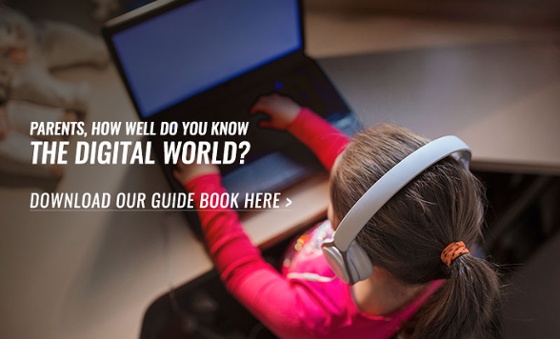-1.png)
EtonHouse Singapore

Technology has transformed the way children learn and communicate in the world today. We often think of the potential negative effects of technology on our children, and we try to protect our children against them. In this digital age, the challenge for you, as a parent, is not to shield your child from technology entirely, but to educate him on how to use it properly and responsibly.
Here are five strategies to help you guide your child in becoming a responsible digital citizen:
Strategy 1: Keep your lines of communication open
It is necessary to maintain open communication between your child and you. Without it, misunderstandings may arise. Hence, find time to sit down with your child and have a discussion about the use of technology and social media platforms.
At a young age, your child may not know how to properly use technology yet. It is your role then, to guide and explain the pros and cons of the digital world. Keeping an open line of communication with your child will help him feel more connected with you and more comfortable to talk to you about any challenges they face in future. Your child will also be more willing to listen to your advice, as you nurture them to become responsible digital citizens.
Strategy 2: Establish clear expectations
Establishing reasonable rules about the timing, place, frequency of using digital gadgets helps your child to be clear of what is expected of him. State these rules clearly, hold firmly to them and be consistent in enforcing them. Affirm and praise your child when you see him intentionally adhering to the rules. If he does not follow the rules, seek to understand the situation - find out why and how he feels.
The ultimate purpose of setting expectations is to allow your child to take responsibility for his own choices and behaviour. Remind him that good choices generally produce favourable results while bad choices often trigger unpleasant consequences.
Strategy 3: Make playtime a priority
When your child wakes up in the morning, what is the first thing he looks for? Is it his smart phone, tablet, or gaming device? Excessive dependence on technology can lead to sleeping disorders, a reduced attention span and other health problems. If your child is reaching for his digital device first thing in the morning, start putting preventive measures in place by making playtime with him a priority in your life.
No matter how busy you are, there is no good excuse not to play with your child. Children love to play and interact with their parents. When you give your child your full attention, he is more likely to be interested in spending time with you rather than with his digital device. Remember, you don’t need a ‘digital babysitter’ to take care of your child!
Strategy 4: Be a good role model
You are your child’s best role model. Assess your habits - are you spending more time on your screen than playing with your kids?
Children are most impressionable from a young age. They learn by imitating your actions and look up to you to glean examples of appropriate behaviour. Work towards being a good influence and role model to your child. One way to do so is to refrain from texting or doing work on your laptop when it is supposed to be playtime or during meals. It benefits your relationship with your
Strategy 5: Designate tech-free areas at home

In line with establishing expectations, clearly draw out areas or spaces at home where technology is not allowed, e.g. during meals at the dining table. During meal times and family gatherings, it is best to go screen-free. This helps to promote healthier eating habits and family bonding.
Make it clear to your child where and when he is allowed or disallowed to use his digital devices. Allow him to browse the Internet for a specific time frame when he needs to do research for school work or when he wants to connect with friends on social media.
It is best to guide our children from an early age, and these suggested strategies help them grow to become responsible digital citizens. As we move forward with modern advancements, let us not lose our focus on putting our children's interests at the heart of what we do!


